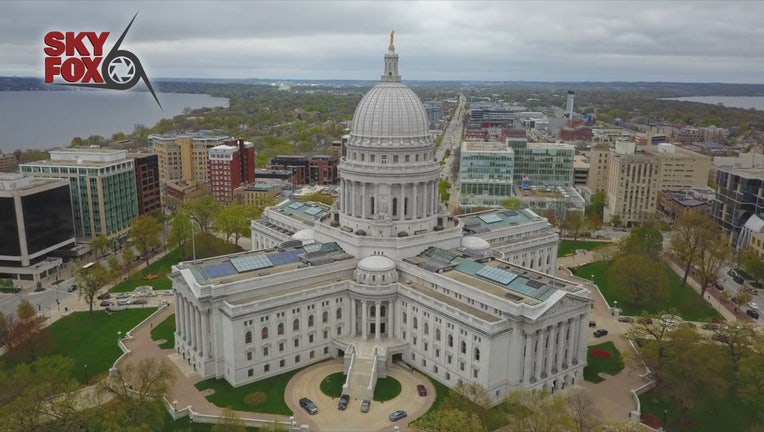Absentee rule, Wisconsin Elections Commission proceeds

Wisconsin State Capitol, Madison
MADISON, Wis. - The Wisconsin Elections Commission is moving ahead with enacting a rule that will make clear that local election officials can fill in missing information on absentee ballot envelopes submitted by voters.
The bipartisan commission voted 4-2 on Monday to use its existing guidance on correcting absentee ballot envelopes when drafting an emergency rule spelling out what is allowed for clerks, the Wisconsin State Journal reported.
The commission’s vote follows a demand from the Legislature’s Republican-controlled rules committee for emergency rules on such envelope "curing," as well as on the use of ballot drop boxes, by Feb. 9. The commission on Friday deadlocked on what to do about absentee ballot drop boxes, leading Republican Sen. Steve Nass to urge filing a lawsuit if the Legislature's deadline is missed.
The Wisconsin Supreme Court late Friday allowed absentee ballot boxes to remain in place for the Feb. 15 primary, but said it would rule at a later date on their legality going forward.
Republicans have been targeting guidance issued by the bipartisan commission after President Joe Biden narrowly defeated Donald Trump in 2020 by just under 21,000 votes. Some Republicans, including gubernatorial candidates Rebecca Kleefisch and Kevin Nicholson, have called for dissolving the commission. Democratic Gov. Tony Evers, who would have to sign any bill passed by the Legislature to do that, opposes doing away with the commission.
On the issue of absentee ballots, the commission's current guidance issued in October 2016 allowing clerks to correct witness address omissions and mistakes on absentee ballot envelopes without contacting the witness or the voter.
SIGN UP TODAY: Get daily headlines, breaking news emails from FOX6 News
The nonpartisan Legislative Audit Bureau last year reviewed 14,710 absentee ballot certificates in 29 municipalities and found that 1,022 certificates (6.9%) were missing parts of witness addresses, 15 (0.1%) did not have any witness address at all, eight (less than 0.1%) did not have a witness signature, and three (less than 0.1%) did not have a voter signature.
The commission deadlocked 3-3 on a Republican-backed motion on Monday that would have required clerks to contact voters before making any changes to the ballot envelope.
Featured
Wisconsin fatal mall shooting; sentencing set for Dezman Ellis
A man convicted in a fatal shooting at a suburban Appleton mall is facing sentencing in Outagamie County Circuit Court.
Featured
Old data can expose you to ID theft
As you clean out old electronics, the experts share simple steps to make sure old data doesn't expose you to identity theft.

1st Wisconsin COVID case 2 years ago
Two years ago, the first case of COVID-19 was reported in Wisconsin, and it's been a long journey since.



